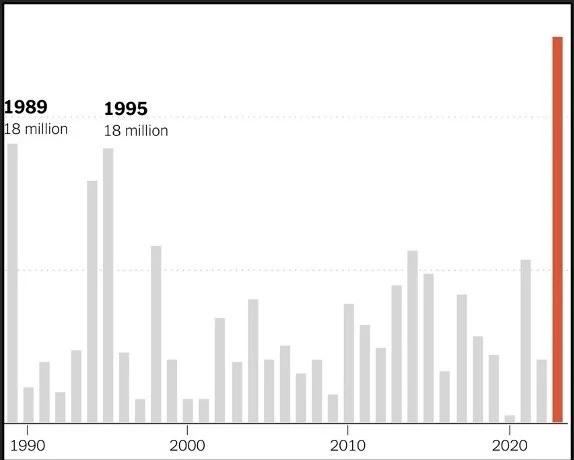Wildfires and Their Place in Planetary Health
Hello everyone. My name is Sai Panidarapu, and I am a second-year student at the University of Calgary! The focus of this month at the AMA writing block is planetary health, which is fundamentally the field of how the human body systems interact with Earth’s natural system. As you can probably infer from the definition, this category is extremely broad, given that the earth’s Earth’s natural system can be influenced by a plethora of factors, especially currently. Given thatAs we live in Alberta, I decided to focus on a subset of climate impact that happens quite frequently in Western Canada – wildfires. During the summertime, when wildfire frequency goes up, the air quality levels can worsen significantly, and pose health risks not only to those with respiratory conditions, but also to otherwise healthy individuals.goes up, the air quality levels can worsen significantly, and pose health risks not only to those with respiratory conditions, but also healthy individuals. In this article, I will talk about wildfires in the context of planetary health.
First, it is important to note that wildfires may be an indicator of planetary health. As a medical student, my mind goes to the idea of a surrogate marker. A surrogate marker is a sign or lab value that a clinician can use to predict a clinical outcome. As such, though a bit abstract, wildfires may be a surrogate marker of planetary health – destruction of wildlife and vegetation, loss of diversity in animals, and a great example of how our interactions cause damage to the environment (especially given that most wildfires are human-caused.
Second, as more and more wildfires happen, there may be considerable global warming issues that arise. The huge amounts of greenhouse gases that may beare released when several thousands of acres of land are burned accelerate global warming, leading to increasinge temperatures, which may cause health crises in already warm parts of the world.
This segways into another important topic to address, which is who is affected by these environmental impacts forrom a healthcare lens. From my experience, I would think that those with respiratory conditions – COPD, asthma, emphysema, and other chronic lung conditions - would be susceptible to having their lung health worsened by increased wildfire frequency. The reason for this is directly related to the decreased air quality that happens during the wildfires. To speak to this with an image, I want to draw your attention to figure Figure 1 – a graph that shows the growth of wildfire effects in Canada (1)!
Figure 1: Graph of acres of land burned by wildfires each year in Canada. Lichtblau M, Berger J. Canada’s worst-ever wildfire season: thousands of fires burning across the country. The New York Times. 2023 Jul 18. Available from: https://www.nytimes.com/interactive/2023/07/18/climate/canada-record-wildfires.html
As seen in the figure, compared to several decades ago, in 2023, the acres of land burned by wildfires went up considerably. Though the amount of land burned in 2024 went down to around 13 million acres (and notably the graph is outdated). Already in 2025, 18 million acres of land were burned, which is above the 10-year average and considerably higher compared to 2023 (2). This speaks to the fact that while the amount of land burned in any given year due to wildfires fluctuates, it is very much not in control. When there is this much damage to the environment from wildfires, the air quality index can sometimes even surpass 10 (which I used to think was the max!). I am sure we all take a step back from our phones during the wildfire days in the summer and see that the air quality index is 11. There are a lot of irritants in the smoke from the burnt trees, which can make itstheir way into your airways and cause inflammation and irritation. At this point, it is integral that you stay indoors and avoiding outdoor activity to ensure you are taking care of your lungs. If you need to step out, using a mask can go a long way in helping avoid lung irritation.
Ultimately, I spoke to what wildfires contribute from a planetary health perspective, who is affected by it, and how we can avoid the respiratory effects that wildfires may cause. Though we are quite far from the wildfire season right now, it is important to be cognizant of the upcoming year, and I hope that after reading this article, you feel more well well-equipped to tackle wildfires from a health lens! Thank you for reading this article, and see you next time!
References
1. Graph of acres of land burned by wildfires each year in Canada. Lichtblau M, Berger J. Canada’s worst-ever wildfire season: thousands of fires burning across the country. The New York Times. 2023 Jul 18. Available from: https://www.nytimes.com/interactive/2023/07/18/climate/canada-record-wildfires.html
2. Cecco, L. (2025, August 17). ‘Pray for rain’: wildfires in Canada are now burning where they never used to. The Guardian. Retrieved from https://www.theguardian.com/world/2025/aug/17/new-canada-wildfires-locations

